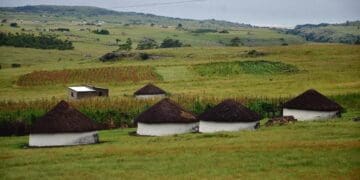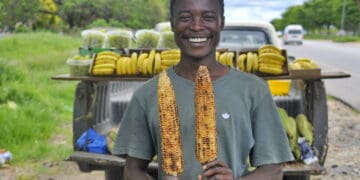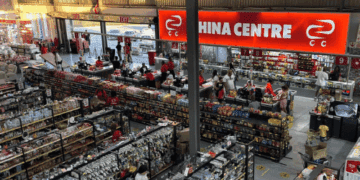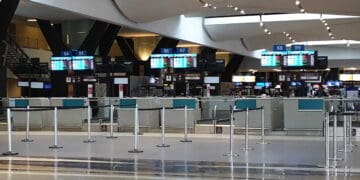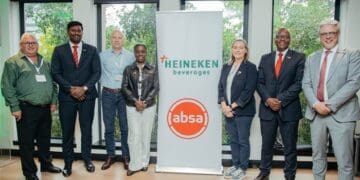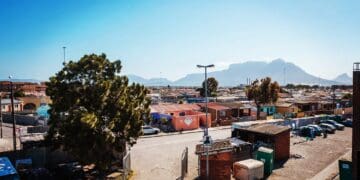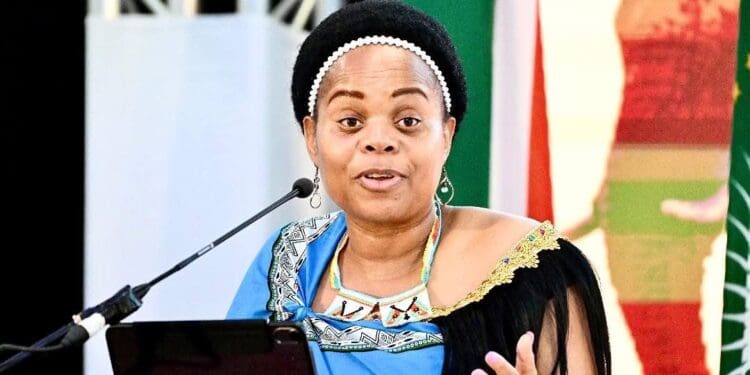Limpopo has reinforced its position as a strategic investment destination, with the recent Limpopo Investment Conference culminating in pledges of R170.038 billion from a combination of local and international investors.
The conference, convened by the Limpopo Provincial Government in collaboration with the Limpopo Economic Development Agency (LEDA), provided a platform for robust discussions on the province’s economic potential, highlighting opportunities in renewable energy, mining, agriculture, tourism ,manufacturing and SME development.
The pledges are expected to create thousands of jobs and support hundreds of SMEs, potentially boosting Limpopo’s industrial growth by 5–7% over the next five years.
Premier Dr Phophi Ramathuba said Limpopo’s geographic position, mineral wealth and renewable energy potential make it a gateway to both the Southern African Development Community (SADC) and the African Continental Free Trade Area (AfCFTA).
“With vast mineral deposits and solar energy potential, Limpopo is not just a resource base, it is a launchpad for industrialisation, job creation and sustainable economic growth,” she said.
The Premier stressed that localising processing and manufacturing would create jobs while supporting South Africa’s energy transition, particularly in sectors such as solar panel and battery production.
Agriculture also featured prominently in Ramathuba’s address. She highlighted a new trade agreement between South Africa and China, which opens the Chinese market for apricots, peaches, nectarines, plums and prunes, unlocking over R400 million in potential for SA’s stone fruit industry.
“Regions in Limpopo such as the Waterberg, Capricorn and Levubu Valley are ideally positioned to benefit from this opportunity,” she said. Ramathuba urged farmers to adapt: “You can no longer afford to fold your arms and do business as usual,” while stressing that infrastructure remains a major constraint to growth.
Tourism also emerged as a key investment pillar, with Limpopo’s proximity to Zimbabwe, Botswana and Mozambique positioning it as a strategic gateway for cross-border trade and travel. Plans to expand eco-tourism and heritage projects near Kruger aim to attract investors potentially increasing Limpopo’s tourism revenue by 8–10% and strengthening tourism linked value chains.
“Development is not just about accumulating wealth, it is about creating systems that enable people to live dignified and meaningful lives,” said Limpopo MEC for Economic Development, Environment and Tourism, Tshitereke Matibe.
“Under Premier Ramathuba’s leadership, Limpopo has become the fastest-growing provincial economy in South Africa, with strategic projects like the Musina-Makhado Special Economic Zone driving industrial diversification and job creation.”
Brand SA General Manager Lefentse described Limpopo as a crucial province for foreign direct investment. “Limpopo’s strategic location and natural endowments position it as a hub for frontier sectors like green hydrogen, electric vehicle manufacturing and renewable energy technologies,” he said. Brand SA added that Limpopo contributes over 12% of South Africa’s renewable energy output, “second only to Gauteng and the Western Cape, with a significant portion generated by agriculture-led renewable projects.”
AfCFTA Secretary-General Wamkele Mene underscored the importance of SMEs in realising the province’s investment potential.
“SMEs in Limpopo are vital to economic growth not only as job creators but as drivers of innovation and industrial supply chains,” he said. Mene urged for stronger financial and technical support for small businesses to help them integrate into continental markets through agro-processing, renewable energy and light manufacturing.
Minister of Electricity, Dr Kgosientso Ramokgopa reinforced the link between energy security and economic growth, noting that reliable electricity is critical for industrialisation and investment. Limpopo’s grid capacity, high solar irradiation and mineral resources make it ideal for renewable energy projects, including hybrid solar and battery systems. Highlighted projects include 1.1 MW hybrid systems, 300 kW solar panels with 1.5 MWh battery storage, and 1 MW PV installations, providing both industrial and SME investors with immediate operational opportunities.
Adding to the narrative of collaboration, Harish Kumar, Consul General of India, said India views Limpopo as “both a promise and a partnership, connecting our histories and our futures.” He added that India is ready to support the province’s vision of a mining academy and sees “immense scope for collaboration in solar power, green hydrogen, smart irrigation, and heritage tourism where Limpopo’s natural wealth meets India’s technological and entrepreneurial strength.”
Stanley Godi of ABSA Bank highlighted the role of finance in enabling SMEs.
“Partnerships and tailored financial solutions are vital for SMEs to access development finance, gain business skills, and connect to markets,” he said.
ABSA’s Enterprise and Supplier Development strategy provides business development support, training and access to funding.
The bank has partnered with Marula Platinum Mine to fund local SMEs in the supply chain, the University of Venda to run skills programs and pitching platforms for local businesses, and Youth in Agriculture (Waterberg) to support young farmers with financial literacy, compliance, and market readiness. These initiatives strengthen Limpopo’s focus on agriculture, mining, tourism and infrastructure logistics.
Ramathuba said the R170 billion in pledges represents not only capital but a tangible path to job creation, industrialisation and economic transformation in Limpopo.
olga@vutivibusiness.co.za









